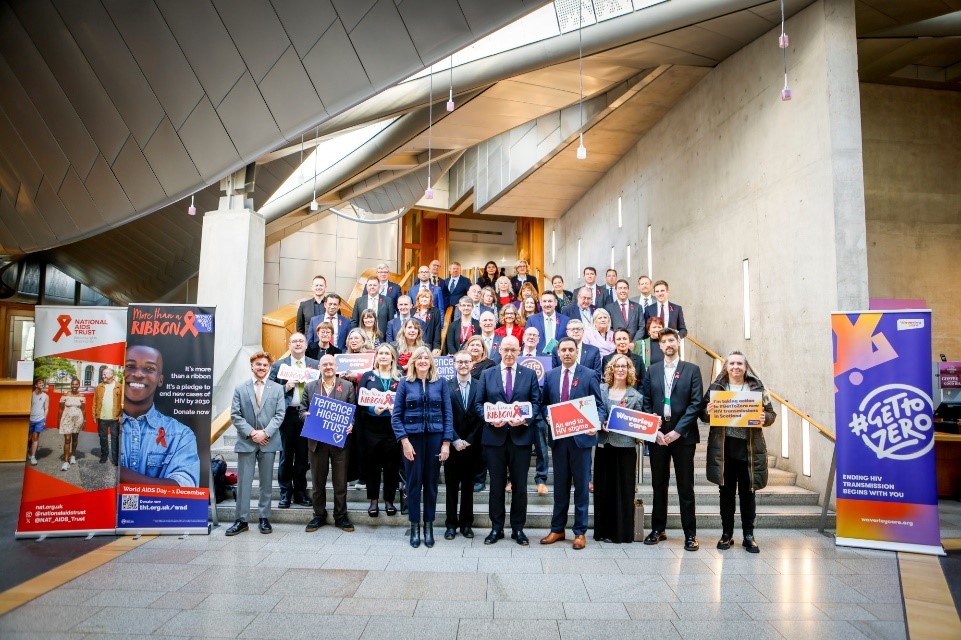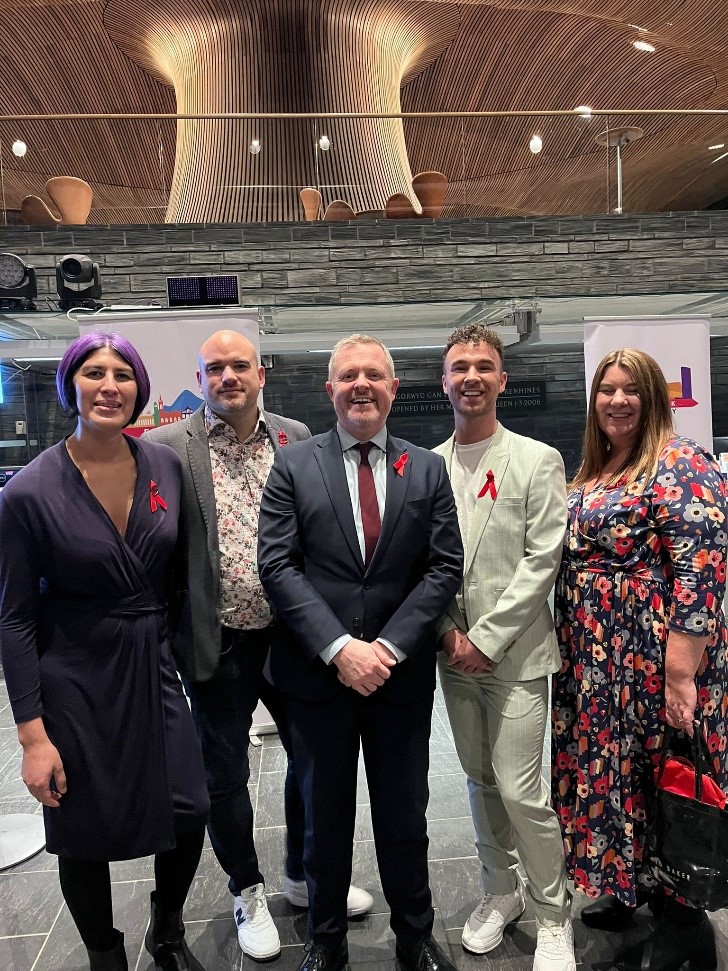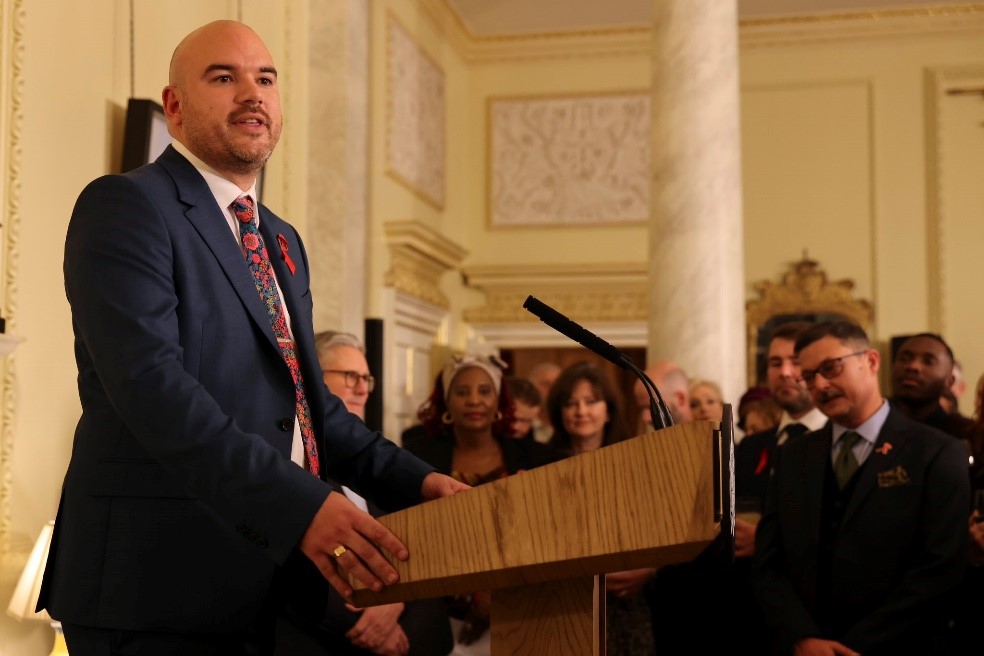We celebrated policy wins across the UK that will bring us closer to ending new HIV transmissions by 2030, tackling stigma, and supporting everyone living with HIV who needs us.
1. £27 million for opt-out testing in England
The Prime Minister, Keir Starmer MP, announced £27 million of funding to extend the highly successful NHS emergency department opt-out testing programme in England. Supporting the international effort to ending HIV/AIDS, a further £37 million will go to towards increasing access to vital sexual and reproductive health services and support for vulnerable and marginalised people across the globe.

2. Funding to tackle HIV stigma in Scotland’s health and social care sector
Scotland’s Minister for Public Health, Jenni Minto MSP, announced that the Scottish Government will provide further funding to tackle HIV stigma in health and social care settings. The announcement follows the publication of the Scottish Government’s HIV Transmission Elimination Delivery Plan and the success of 2023’s national HIV anti-stigma campaign in Scotland, delivered by Terrence Higgins Trust in collaboration with the Scottish Government and sector partners.

3. Welsh Government to work with Terrence Higgins Trust Cymru to provide peer-support
In advance of World AIDS Day, Cabinet Secretary for Health in Wales, Jeremy Miles MS, provided an annual update to the Senedd on progress towards the HIV Action Plan for Wales. The Health Secretary recognised Terrence Higgins Trust’s ‘My Community’ platform and its role in providing an online peer-support service and, at a World AIDS Day Reception in the Senedd, the Cabinet Secretary went on to commit to working with Terrence Higgins Trust Cymru on the platforms delivery in Wales.

4. Improved reporting on UNAIDS 95-95-95 targets
The UK Health Security Agency (UKHSA) has amended their reporting of the UNAIDS 95-95-95 goals as to better account for people not attending HIV care as well as missing data. The UNAIDS targets assist in measuring (i) how many people living with HIV are diagnosed (ii) how many of people diagnosed with HIV are receiving treatment and (iii) how many people receiving treatment have a supressed viral load.
We have been pressing for a change to this reporting to ensure everyone is properly captured. Unfortunately, it confirms what many suspected - that England has not reached the 95-95-95 target. This honest assessment from UKHSA is welcome and should be a wakeup call. New reporting for 95-95-95 puts England in a range between 96%-94%–96% to 96%-94%-92%.
In their annual HIV data release in September, Public Health Scotland similarly updated how these targets were reported. With a goal to achieve 95-95-95 by 2025, Scotland currently sits at 93-78-97.

5. HIV as a long-term condition
In his World AIDS Day speech, the Prime Minister stated that HIV should be considered a long-term condition. Officially changing this would be a welcome acknowledgement of progress made in treatment and would change how the condition is managed by the health service.


